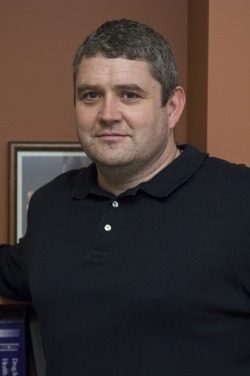Pharmacy appoints Chair in Teaching and Learning

Memorial University recently appointed 13 educators in various academic units as Chairs in Teaching and Learning, The chairs will support teaching and learning across the university by collaborating with colleagues to advance the objective of the Teaching and Learning Framework.
Dr. John Hawboldt accepted the position in the School of Pharmacy.
He noted that while the school is already doing innovative work in teaching and learning, it is important to continue to improve teaching through both tried and novel approaches to enhance student learning.
“Our pharmacist preceptors, for example, are integral to our students’ success and add so much to our program – the experiential learning component –of our program forces students to apply the knowledge they’ve gained in the classroom to actual pharmacy practice and is really what makes them excel,” he said.
Pharmacy students are required to complete four Structured Practice Experiences (SPEs) throughout their four years in the program, –during which they are placed in a pharmacy to observe and practice the skills necessary to become a pharmacist.
“Evaluating how this system works is a part of the development of our upcoming PharmD program, as we will require even more experiential learning in our new program. So recognizing what is working and what we need to improve upon is vital to this process.”
The school hopes to admit its first Entry-to-Practice Doctor of Pharmacy (PharmD) class in the fall 2017 semester. Several events have been held to engage the pharmacy community in the program’s development.
Dr. Hawboldt has been an advocate of using research to inform teaching and learning, and vice versa. Along with Dr. Beverly FitzPatrick (School of Pharmacy), he recently conducted a study focusing on the assessment and improvement of students’ skills in communication and critical thinking skills.
“Communication is a skill that pharmacy students need instruction to master,” he said. “Our graduates have a responsibility to communicate their knowledge -to other health-care professionals in all disciplines, to their patients and to the public, so they have to be taught to convey information in a clear, succinct manner to specific audiences.”
In the study, the students completed ongoing written assessments that required critical thinking and communication skills about specific pharmacy cases. After each exam, Drs. Hawboldt and FitzPatrick taught a class where they worked with the students to explicitly address how they could improve these skills in their exam responses and other relevant pharmacy cases. While much of the data is still being analyzed, most students wrote that they thought their learning and understanding improved throughout the study.
“The nature of the Teaching and Learning Framework is to shine a light on exemplary teaching and learning that is already happening here at Memorial, and to put a structure around how to improve it. That’s what I hope to achieve in this position as well.”